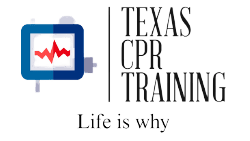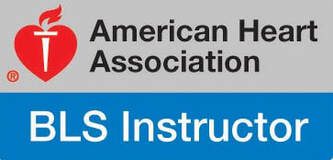American Heart Association CPR Instructor Course
214-770-6872
texascprtrainingcenter@gmail.com
American Heart Association CPR Instructor Course
The American Heart Association AHA is a worldwide leader in First Aid, CPR, and AED and BLS Basic Life Support CPR training, and it educates more than 22 million people globally in CPR each year.
Texas CPR Training teaches to American Heart Association standards and is always seeking professionals to train others in First Aid, CPR, AED and BLS Basic Life Support for healthcare providers.
This could be the perfect fit for you if you are passionate about saving lives, you are motivated to facilitate learning, feel comfortable in group settings, and find it easy to convey complex concepts to others, and as an American Heart Association CPR Instructor, you have more control of your time with a flexible schedule.
Corporate CPR Instructor
Some companies may find it more cost effective and simpler for business to have an instructor onsite. Call or send an email to discuss if this is right for your company.
Independent CPR Instructor
Earn extra money, set your own hours, be your own boss.
Course Cost:
$250.00 plus cost of Essentials online course and Instructors manual (sold separately- see below)
(third Tuesday of each month) in Garland
$500.00 one-on-one scheduled a day that is convenient for you.
There is a strict no refund policy once payment has been made.
To register call 214-770-6872 or send an email to texascprtrainingcenter@gmail.com with your name, date of class, contact number and a copy of your current AHA provider card.
Get Started!
- Hold an American Heart Association Healthcare Provider BLS Basic Life Support CPR card (OR)
- Heartsaver CPR/AED/First Aid card (non healthcare)
If you are a BLS Instructor you can teach all BLS Basic Life Support healthcare provider courses and Heartsaver courses.
If you are a Heartsaver Instructor you can only teach Heartsaver courses.
- https://shopcpr.heart.org/bls-instructor-essentials-online
- https://shopcpr.heart.org/heartsaver-instructor-essentials-online
- Heartsaver® Adult First Aid CPR AED Instructor Manual
(and/or) - Heartsaver Pediatric First Aid CPR AED Instructor Manual
Keep in mind you will need to purchase equipment such as manikins, AED trainers, face masks and Bag masks. Do NOT order any equipment until after the instructor course.
Some topics discussed in the AHA CPR Instructor Course:
- Understanding the American Heart Association CPR Instructor Network
- The Instructor’s Manual and how to use it
- Reviewing the PAM (Program Administration Manual)
- The PAM provides information about how to administer courses in general. It has the overall rules and guidance.
- How to get course completion cards for students
- Course completion card and how to issue to students
- What paperwork is needed in each class
- Exams and how to use them
- Skills checks and how to administer them
- How to identify and correct weak skills by using the critical skills descriptors and offering positive and corrective feedback
- Using Lesson Plans in the Instructor’s Manuals
- Skills testing and remediation
- Maintaining Instructor Status
- Required equipment
- Preparing for the course
- Materials and forms needed to teach a class
After all of the above is complete you will be observed teaching your first class before you go out on your own. This must be completed within six months or you will have to take the instructor course again.
At the end of the Instructor Essentials Course you will be able to:
- Identify the prerequisites to becoming an American Heart Association CPR Instructor
- Describe the usability of the Program Administration Manual (PAM)
- Understand the core competencies of an American Heart Association CPR Instructor
- Know the 5 steps of the American Heart Association Instruction Cycle
- Identify resources available to an American Heart Association Instructor
- Describe how to use discipline-specific American Heart Association Instructor materials: the instructor manual, lesson plans, course videos, and skills testing checklists
- Specific course formats available to students for completion of the course
- Course completion requirements
- Flexibility options available to an American Heart Association Instructor within the course
- Requirements for how to maintain an American Heart Association Instructor status
- Understanding American Heart Association Instructor feedback and remediation techniques
- Demonstrate the administration of skills testing with the use of the skills testing checklist
Upon completion of the Instructor Course you will come back and help teach a class before you go out on your own.
Instructor Alignment
Requirements for Instructor Alignment
An instructor candidate must complete all requirements and align with an approved primary AHA TC that is authorized by the AHA to teach in that territory before teaching a course other than the initial monitored course. Only instructors aligned with a TC are authorized to teach courses and issue course completion cards.
The following are requirements for instructor primary alignment:
- No fees are paid to the AHA for this alignment. Any fees charged for instructor alignment are solely at the discretion of the TC. There is a $50 alignment fee every year.
- The TCC may require a meeting with or monitoring of the instructor applicant before acceptance. The course monitoring will be done by designated TF. The TCC decides whether to accept the instructor for alignment. This decision is final.
- TCs may cancel the alignment (deactivate) of an instructor with their TC who fails to act in accordance with AHA course policy or TC policy.
- TCs are not obligated to accept all instructors who apply for alignment. The TC has the sole right to determine which instructors to keep on its roster based on its criteria.
- The primary TC is responsible for instructors’ adherence to AHA guidelines.
Becoming an American Heart CPR Instructor: A Life-Saving Journey
Being an American Heart CPR instructor is more than just a role—it’s a vital mission. Here’s why you should consider taking up this impactful responsibility:
Save Lives: As an instructor, you’ll equip others with the knowledge and skills to perform CPR effectively. By doing so, you multiply the chances of survival during critical moments.
Empower Communities: Imagine a world where everyone knows how to respond during cardiac emergencies. By teaching CPR, you empower individuals, families, and communities to take action swiftly and confidently.
Career Fulfillment: Beyond the rewarding feeling of making a difference, being a CPR instructor enhances your professional journey. You become a beacon of preparedness and resilience.
Health Advocacy: Educating others about CPR isn’t just about technique; it’s about promoting heart health awareness. You contribute to a healthier society by spreading knowledge.
Confidence Booster: Knowing that you’ve equipped others to save lives builds your own confidence. You’ll be ready to handle emergencies calmly and effectively.
So, join the ranks of American Heart CPR instructors—be a hero, a mentor, and a life-saver.
Why Everyone Should Be Trained to Give CPR
CPR saves lives—just not as many as it should. Far too few Americans know how to perform it. When people experience heart attacks in public or at home, there’s often no one around who knows how to help them. With each passing minute, the chances of surviving a heart attack decline. In fact, only about one in 10 cardiac arrest patients survive. Becoming a CPR instructor isn’t just a career move; it’s a life-saving endeavor. By training others, you empower them to act swiftly during emergencies, potentially doubling or tripling someone’s chance of survival. Let’s make CPR knowledge widespread and accessible to all!
American Heart CPR Instructor Course of Dallas
CPR Training in Dallas, Texas and all surrounding areas.
Greenville, Texas – Irving, Texas – Addison, Texas – Farmers Branch, Texas – Duncanville, Texas – Lancaster, Texas – Sunnyvale, Texas – Coppell, Texas – Carrollton, Texas – Grand Prairie, Texas – Lewisville, Texas – Richardson, Texas – Sachse, Texas – Seagoville, Texas – Terrell, Texas – Wylie, Texas – Denton, Texas – Fort Worth, Texas – Arlington, Texas – Plano, Texas – Frisco, Texas – Allen, Texas – Rowlett, Texas – Rockwall, Texas – Mesquite, Texas

